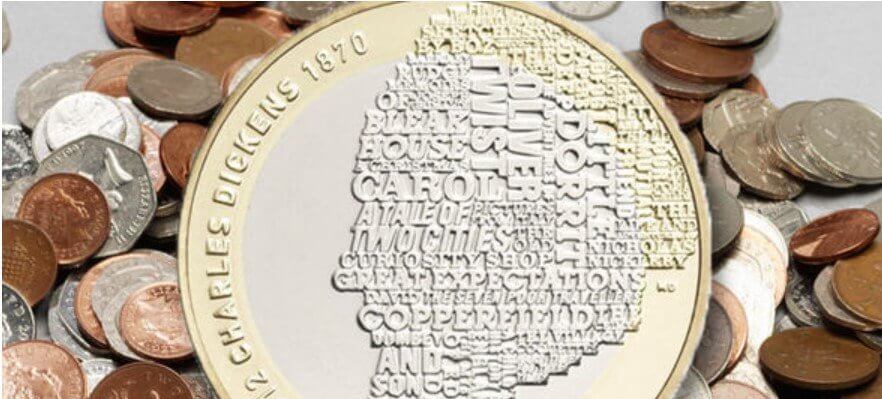eBay vs Amazon.
It’s the most fascinating rivalry in eCommerce. Recent controversies surrounding buyer-poaching has only added more fuel to the fire.
Few outsiders could have imagined the scope of Amazon’s future growth when it announced in 1998 that it intended to expand into more than just books. You have to wonder how the executives at eBay might have reacted to that news, if at all.
The rivalry as it stands
Amazon holds close to 49% of the US eCommerce market, with eBay way behind on 6.6%, albeit still in second place (source).

Why is eBay moving away from auctions?
The real competition between Amazon and eBay isn’t for buyers. It’s for sellers. Convenience and service matters to consumers, of course. But ultimately they will go wherever the best products and deals are.
eBay might have made its name with auctions but eCommerce has changed a heck of a lot since ’95.
The old auction system that was initially it’s most exciting feature is being gradually phased out, accounting for only 15% of sales on the site. eBay has embraced the “fixed-price” model and fallen in line with the rest of eCommerce. While some sellers might see the auction as an intrinsic part of the eBay experience, and it’s most attractive feature, for most of its current merchants it’s irrelevant.
Merchants want to make sales and lot of them. The auction system was not designed for this.
The modern buyer’s short attention span and the thirst for convenience above all else has certainly played a role in this change. It’s no longer desirable to wait for a couple of days just to see if you’ve “won” the item you want, not to mention the chore of checking in at regular intervals on your bid.
Of course, for some, the novelty of the auction has yet to wear off. And for one-offs and rare collectibles, for example, the auction system perfectly suits merchants looking to maximize their profits.
I would argue that it’s essential for eBay to hold on to auctions, in some shape or form, forever. It’s certainly a U.S.P. and from a PR perspective, it can still generate huge amounts of interest in, and coverage of, the marketplace.
We’ve seen evidence of this recently with a rare, flawed “Charles Dickens” coin (worth just £2 as legal tender) which sold on ebay.co.uk earlier this year for £500. Another one has just been listed on the site for a starting price of £900. The story has been printed in almost all of the British daily papers and shared countless times online.

For rare items and collectibles, eBay is still the number one marketplace
So is eBay just becoming Amazon-lite?
There are people out there (both sellers and buyers) that have bemoaned the “Amazonification” of eBay. But we should hardly be surprised that eBay has taken some lessons from its biggest rival.
It’s only natural that eBay would want to replicate aspects of its rival’s user experience, even if that means losing some of what gave it the original charm. To be honest, these days its difficult to find a marketplace or web store that doesn’t follow the blueprint Amazon has perfected.
Following the pack will only get you so far, however. eBay’s long-term success is dependent upon its ability to outdo Jeff Bezo’s giant in as many areas as it can.
That’s why eBay has invested so much of its resources in its Image Search technology. In fact, right now, it probably leads the way for this.
Could Image Search be eBay’s trump card?
It’s already proven popular with buyers, and with mobile browsing continuing to increase, the potential of this technology is huge. For sellers who operate across a number of different marketplaces, this is an added bonus. For merchants who steadfastly remain loyal to eBay, however, it’s a far bigger deal.

Why Image Search is good news for eBay sellers
Since its launch, eBay has been known for the “rough and ready” style of its listings. eCommerce has come a heck of a long way since then, and buyers aren’t prepared to wade through page after of low-quality, homemade images looking for what they want. They’ve become used to a certain standard and expect the same experience from every online storefront.
And that’s by no means a slight on the merchants who use eBay and have grown very successful businesses exclusively through it. It’s just that there aren’t always enough hours in the day, or the necessary resources, to take have professional-grade photographs of your entire catalog. This is especially true if you’re continually investing in new products.
CEO of Pinterest Ben Silberman has said that “the future of search is going to be about pictures instead of keywords”, as reported here. Now you might say that he’s biased, seeing as how Pinterest is an image-based website, but he does have a point. In the past 5 years, we’ve seen the popularity of mobile devices for browsing (at the initial stages of interest at least) increase significantly.
You only have to observe the rise of apps like Instagram and Snapchat to realise that Generation Y, and the generation coming up behind it, have wholly embraced photography as a vital means of social interaction. And there’s no going back.
Final Word
If eBay if is to outpace, or maybe just even survive, then it’s got to continue to innovate. It can’t out-muscle Amazon, but it might just be able to out-maneuver it.
If it does that then sellers will flock to it. And then the battle will start all over again.
eDesk the next-generation helpdesk, built for e-commerce from the ground up. It allows sellers to simplify and scale their customer support, daving you time, money and headaches.


